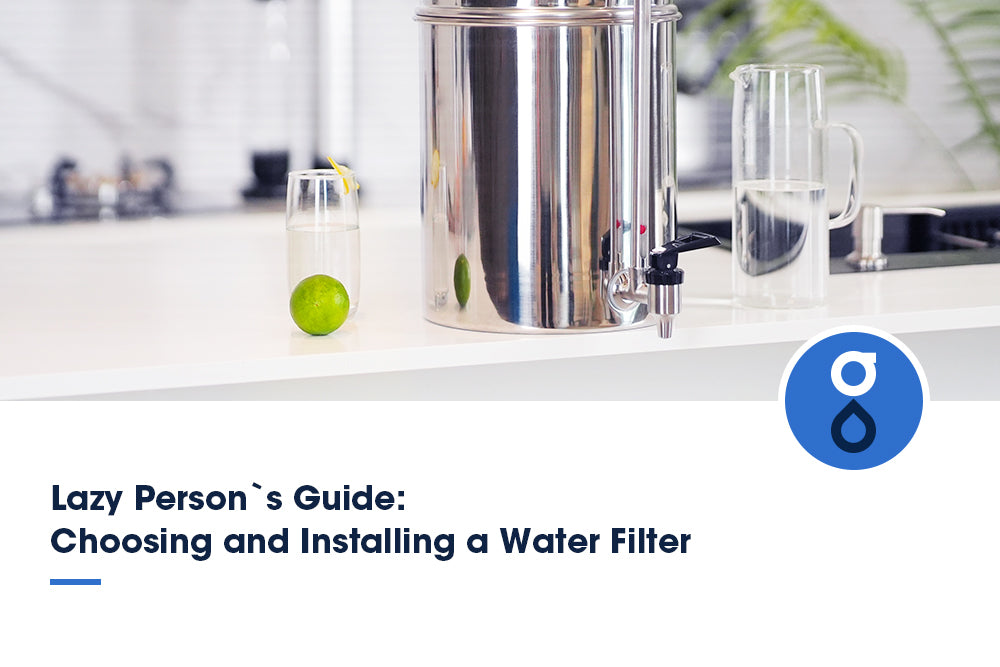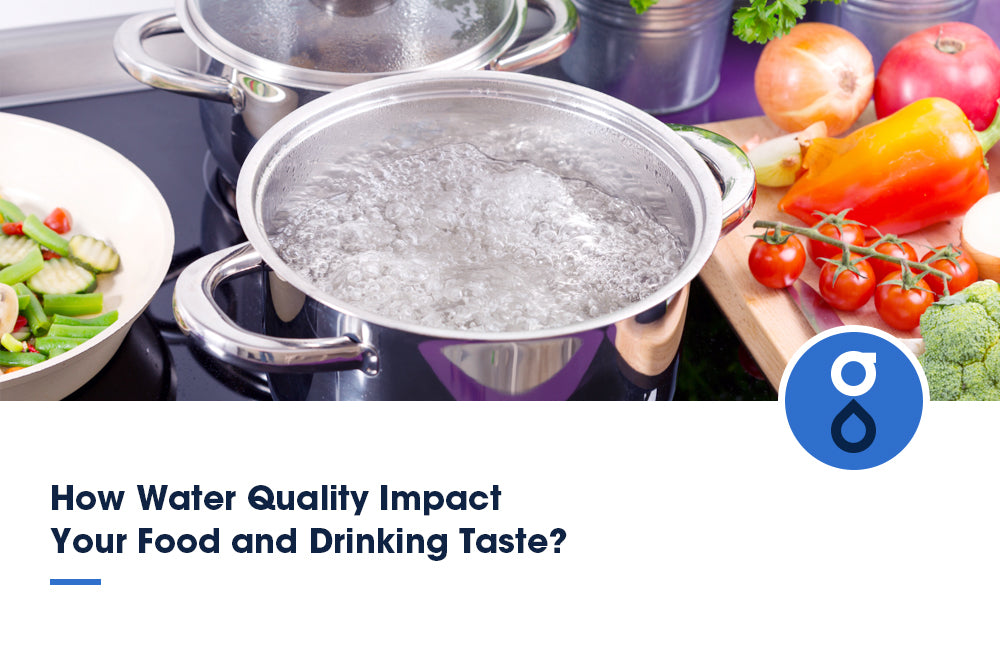Table of Contents:
Dangers of hurricanes on drinking water quality
Health risks with contaminated water caused by hurricanes
Preparations you can make before hurricane arrival
Steps to ensure access to safe drinking water during hurricanes
Common water contaminants after a hurricane
Types of water filters you may urgently need after hurricanes
FAQs
Conclusion
Do you know why clean water is crucial during hurricane season? Discover the dangers hurricanes pose to drinking water quality and the health risks of contaminated water. Learn how to prepare before a hurricane and the steps you can take to ensure access to safe drinking water during the storm. Find out about common water contaminants that arise after a hurricane and the types of water filters you may urgently need. Stay informed and stay safe.
Dangers of hurricanes on drinking water quality

During hurricanes, several dangers can impact the quality of drinking water.
Animal waste from farms leaching into freshwater sources
When hurricanes strike, it's important to be aware of how animal waste from farms can leach into freshwater sources, affecting the quality of drinking water. This freshwater pollution has a significant environmental impact and can lead to the spread of waterborne diseases. Here are three reasons why you should pay attention to the dangers of animal waste during hurricane season:
- Contamination: Animal waste contains harmful bacteria and chemicals that can contaminate nearby freshwater sources, making them unsafe to drink.
- Runoff: Heavy rainfall and flooding caused by hurricanes can cause animal waste to be washed into rivers, lakes, and reservoirs, further polluting the water supply.
- Health risks: Consuming water contaminated with animal waste can lead to serious health issues such as gastrointestinal illnesses and infections.
Toxic chemicals from factories and industrial processes
Additionally, be aware of the potential dangers hurricanes pose to drinking water quality due to toxic chemicals from factories and industrial processes. During hurricanes, heavy rainfall and flooding can cause these poisonous chemicals to be released into freshwater sources, contaminating the water we rely on for drinking and daily use.
Factories and industrial facilities often store large quantities of hazardous substances, such as heavy metals, pesticides, and solvents, which can easily be washed away during extreme weather events. Once these toxic chemicals enter the water supply, they can have serious health implications for humans and wildlife alike. Exposure to these contaminants can lead to various health issues, including gastrointestinal problems, liver damage, and even cancer.
Agricultural runoff into surface water
To protect the quality of your drinking water during hurricane season, be aware of the potential dangers of agricultural runoff into surface water. Agricultural pollution is a serious concern that can significantly impact water quality. Here are three reasons why you should pay attention to this issue:
- Contamination: Agricultural runoff can carry harmful pollutants such as pesticides, fertilizers, and animal waste into surface water sources. These contaminants can risk human health if they enter drinking water supplies.
- Algal blooms: Excess nutrients from agricultural runoff can lead to the formation of harmful algal blooms. These blooms can release toxins contaminating water sources, making them unsafe for consumption.
- Environmental impact: Agricultural pollution can harm aquatic ecosystems, leading to biodiversity loss and disruption of natural habitats. It's essential to monitor water quality and take steps to minimize the environmental impact of agricultural practices.
Under-treated water from water treatment plants
During hurricane season, you must know the potential risks associated with under-treated water from water treatment plants. Heavy rainfall and flooding can overwhelm water treatment systems, leading to an under-treated water crisis.
When water treatment plants cannot treat the water properly, it can contain harmful contaminants and bacteria that severely threaten your health. Drinking or coming into contact with this under-treated water can increase the risk of waterborne diseases such as cholera, dysentery, and typhoid fever.
Additionally, hurricanes can expose inadequate water infrastructure in certain areas, exacerbating the problem. It's crucial to stay informed and take necessary precautions to ensure the safety of your drinking water during hurricane season.
Health risks with contaminated water caused by hurricanes

Protecting yourself from the health risks associated with contaminated water caused by hurricanes is crucial during hurricane season. When hurricanes strike, they can cause significant damage to water systems, leading to an increased risk of water contamination. Here are three important reasons why you need to be aware of the health risks and take necessary precautions:
- Health effects: Contaminated water can pose serious health risks to you and your loved ones. Exposure to contaminated water can lead to various waterborne diseases such as cholera, dysentery, and typhoid fever. These illnesses can cause severe diarrhea, vomiting, and dehydration; in some cases, they can be life-threatening.
- Waterborne diseases: Hurricanes can introduce harmful bacteria, viruses, and parasites into the water supply. These pathogens can cause infections and diseases when ingested or even when they come into contact with your skin. It's essential to be aware of the potential risks and take necessary steps to minimize exposure.
- Sanitation measures: Practicing proper sanitation measures is crucial to prevent the spread of waterborne diseases. This includes boiling water before consumption, using water purification tablets or filters, and practicing good hygiene, such as washing hands with clean water and soap.
Preparations you can make before hurricane arrival
One essential preparation you can make before a hurricane's arrival is stocking up on clean water. As hurricanes can cause widespread power outages and damage water treatment facilities, having a sufficient supply of clean water is crucial for your survival and well-being. You should store at least one gallon of water per person daily for at least three days. This will ensure enough water for drinking, cooking, and personal hygiene needs.
Additionally, it's important to have emergency supplies such as non-perishable food, flashlights, batteries, and a first aid kit in case you're unable to leave your home during the storm. Check and replenish your emergency supplies regularly to ensure they're in good condition and not expired.
It's also essential to have a well-thought-out evacuation plan in place. Familiarize yourself with evacuation routes, know the location of nearby shelters, and keep important documents and valuables in a waterproof container that you can quickly grab and take.
Steps to ensure access to safe drinking water during hurricanes

You must take proactive steps to ensure access to safe drinking water during hurricanes. Here are three essential actions you can take to ensure you have safe drinking water during these tumultuous times:
- Stock up on bottled water: It's crucial to have an adequate supply before a hurricane hits. Aim for at least one gallon of water per person daily to cover drinking and basic hygiene needs. Remember to include water for your pets as well.
- Fill containers with tap water: Fill clean containers, such as jugs or bathtubs, with tap water before the storm arrives. This water can be used for non-drinking purposes like flushing toilets or cleaning, but it can also be treated or boiled for drinking in case your bottled water supply runs out.
- Invest in water purification methods: Consider purchasing a water filter or purifier to eliminate contaminants from available water sources. These devices can be lifesavers during emergencies when safe drinking water is scarce.
Common water contaminants after a hurricane
After a hurricane, understanding the common water contaminants is crucial for ensuring the safety of your drinking water. When floodwaters mix with sewage systems, they can carry many harmful substances, including bacteria, viruses, parasites, and chemicals. These contaminants can lead to waterborne diseases such as diarrhea, cholera, and hepatitis A.
It's essential to conduct water quality testing to identify and monitor the presence of these contaminants. Testing kits are readily available and can provide valuable information about the safety of your water source. Also, storing clean water in advance can help avoid using contaminated water during emergencies. Consider investing in water storage solutions such as large containers or water barrels that are specifically designed for long-term water storage. These containers should be properly sealed to prevent any contamination.
Types of water filters you may urgently need after hurricanes

To ensure the safety of your drinking water after a hurricane, it's important to consider the types of water filters you may urgently need. When it comes to water purification during an emergency, having the right tools in your emergency supplies can make a huge difference in protecting yourself from waterborne diseases. Here are three types of water filters that can help you ensure the cleanliness of your drinking water:
- Activated carbon filters: These filters are highly effective in removing organic compounds, chemicals, and odors from water. They work by trapping impurities in the tiny pores of the carbon, leaving you with cleaner and better-tasting water.
- Ceramic filters: These filters are known for removing sediments, bacteria, and protozoa from water. They've tiny pores that can physically block contaminants, making them an excellent choice for emergency water purification.
- UV filters: UV filters use ultraviolet light to kill bacteria, viruses, and other microorganisms in water. They're easy to use and require minimal maintenance, providing a quick and efficient way to disinfect your drinking water.
Combining these filters in your emergency supplies can greatly reduce the risk of waterborne diseases and ensure access to clean and safe drinking water during and after a hurricane.
FAQs
How long can contaminated water be stored before it becomes unsafe to consume during a hurricane?
Storing contaminated water during a hurricane without proper treatment can jeopardize its safety and potability. Regarding the length of water storage, it's important to note that the safety of stored contaminated water decreases over time. Time, temperature, and purification methods are three important factors for the accumulated length of contaminated water.
How much should you store for an emergency water supply?
It's recommended to store at least one gallon of water per person daily for at least three days. This ensures you have enough water for drinking, cooking, and personal hygiene. However, storing more is always better if you have the means to do so.
What are some alternative sources of clean water during a hurricane if tap water is unavailable?
If tap water becomes unavailable during a hurricane, there are several alternative sources of clean water that you can rely on. Collecting rainwater is an effective way to obtain clean water during a hurricane. And if you live near the coast, desalination can be an option. Moreover, investing in portable water filters can provide clean drinking water during a hurricane.
Conclusion
In conclusion, clean water is vital during hurricane season for maintaining health and preventing waterborne diseases. By understanding the dangers hurricanes pose to drinking water quality, preparing in advance, and taking necessary steps to ensure access to safe drinking water, we can protect ourselves and our communities. It's crucial to be aware of common water contaminants after a hurricane and have the appropriate water filters to ensure clean and safe drinking water.
















